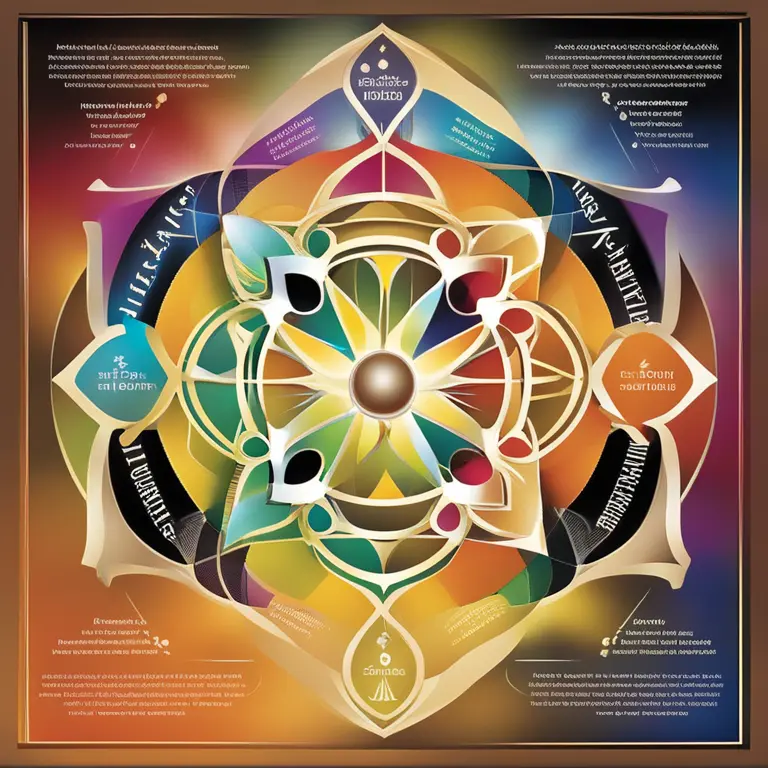
The Biorhythms Theory: Cycles Affecting Your Life
Discover the intriguing concept of biorhythms and how these physiological cycles may influence various aspects of your daily life.
article by Adrian Wallace
Introduction to Biorhythms
Biorhythms are an intriguing area of pseudoscience based on the idea that our lives are significantly influenced by rhythmic biological cycles. It suggests that from the moment we are born, our physical, emotional, and intellectual capabilities are not constant but fluctuate in predictable patterns. While not supported by mainstream science, biorhythm theory has garnered interest among those curious about the intersections of life's patterns and personal well-being. This article will delve into the fundamentals of biorhythms, exploring their origin, components, and the practical implications they may present.

The Origin of Biorhythm Theory
The concept of biorhythms hails from the late 19th century, credited to Dr. Wilhelm Fliess, a Berlin physician, and later developed by Hermann Swoboda and Alfred Teltscher. Fliess believed in a universal life rhythm of 23 and 28 days, influencing one's energy and health. Although subsequent scientific scrutiny has failed to validate Fliess's claims, the allure of these rhythms has persisted, finding a foothold in the world of holistic and alternative practices.

The Three Primary Cycles
Central to biorhythm theory are three primary cycles: the 23-day physical cycle, the 28-day emotional cycle, and the 33-day intellectual cycle. Each cycle is believed to oscillate between high and low phases, potentially impacting our performance, mood, and cognitive abilities. Advocates of the biorhythm theory propose that by understanding these cycles, individuals can anticipate periods of strength and vulnerability, tailoring their activities for optimal outcomes.

Biorhythms in the Modern Era
With the dawn of the digital age, biorhythm calculators have emerged, enabling individuals to chart their personal cycles with greater ease. In 2024 and beyond, biorhythm analysis is embraced by a niche audience who utilize technology to harness what they believe to be inherent personal rhythms, applying the insights to relationships, career decisions, and personal growth.

Scientific Standpoint and Criticism
Scientific criticism of biorhythms centers on the lack of empirical evidence backing the theory. Multiple studies have failed to show consistent patterns as predicted by biorhythm proponents, and the concept is often classified as a pseudoscience. Critics argue that any correlation between biorhythms and life events is due to chance or the placebo effect.
Applying Biorhythms: Should You?
While mainstream science does not recognize biorhythms, individuals interested in holistic and alternative philosophies may find value in tracking their cycles. Those who do follow biorhythms might use them as a guide for mindfulness and self-reflection, rather than a deterministic forecast of the future. Balance and personal resonance with the method are key in incorporating any such belief or system into one's lifestyle.
Conclusion and Future of Biorhythms
The future of biorhythms as a tool for personal insight remains uncertain, as it is largely dependent on individual belief systems. The theory provides an interesting lens through which some may view their life's ebbs and flows. Regardless of scientific validation, the concept continues to intrigue and offer a unique perspective on the complexity of human existence.
Published: 1/30/2024
Modified: 1/30/2024
More predictions
Come back here soon to learn more about yourself and your future


The Interplay of Biorhythm Compatibility in Relationships
Examine the role of biorhythm compatibility in personal relationships and how it might influence bonding and understanding between individuals.


Is Biorhythm Compatibility a Fact or Myth?
Delve into the realm of biorhythms to discover if the science of bio-rhythmic compatibility holds water in harmonizing relationships.


Biorhythm Compatibility: The Sync of Life Rhythms
Discover the role of biorhythm compatibility in relationships, and how syncing life rhythms can influence personal connections.